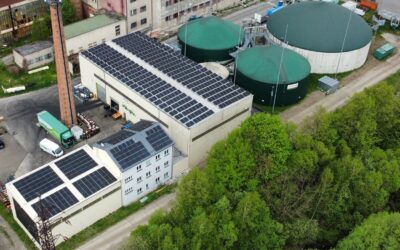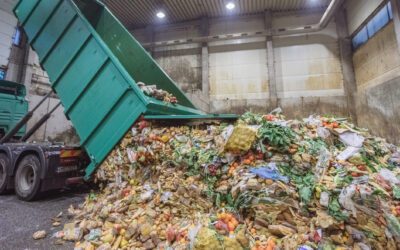At the end of April, Spain, Portugal, and southern France were hit by a widespread power outage that left tens of millions of people without electricity for many hours. A similar situation could occur in the Czech Republic as early as 2028, according to a warning from the European Network of Transmission System Operators. Biogas stations are one of the most stable sources of electricity from renewable sources in the Czech Republic. The Energy financial group therefore plans to increase its total production capacity to almost 20 GWh of electricity per year by the beginning of next year, which will cover the annual consumption of approximately 10,000 households.
The closure of coal-fired power plants, which account for approximately 50 percent of installed capacity in the Czech Republic alone, could lead to instability in the electricity grid without sufficient production capacity replacement. According to possible scenarios for the development of European energy systems published by the European Network of Transmission System Operators, the Czech Republic could face power outages totaling up to 20 hours as early as 2028, when domestic production and electricity imports would not cover domestic consumption. Production may be insufficient throughout Europe, especially during the winter months.
“Developments in the energy market show how important biogas plants will be in the overall energy mix. They can produce green gas as well as electrical and thermal energy. We have almost 600 of them in the country, and their production potential is far from being fully exploited, especially that of waste plants, which are rare in our country. Biogas is not only an environmentally friendly source of energy, but also a stable source based on domestic feedstock. It is green energy that is not subject to weather fluctuations which is crucial for the future of the energy sector,” explains Martin Janda, Director of the EFG Production Division.
Biogas is one of the most cost-effective and sustainable sources for electricity generation during periods of low renewable energy availability, such as windless winter weeks. The use of biogas and biomethane, especially when obtained from biological or agricultural waste without the addition of purpose-grown biomass, reduces not only CO2 emissions from fossil fuel combustion but also methane emissions from waste management.
The growth of the biomethane sector is closely linked to the European Union’s goal of increasing production to 35 billion m3 by 2030, as set out in the RePowerEU plan. To this extent, €25 billion in private investment has been earmarked to date, to be used for the installation of 950 new facilities by 2030. Their operation will increase the production capacity of so-called green gas on this continent by 6.3 billion m3 per year. Thanks to this, biomethane production plants have the potential to supply renewable energy to up to 5 million households in EU countries throughout the year or to power up to 145,000 cars running on BioLNG. At the same time, they can lead to the production of 830,000 tonnes of organic fertilizers and prevent the generation of nearly 29 million tonnes of CO2 emissions per year.

